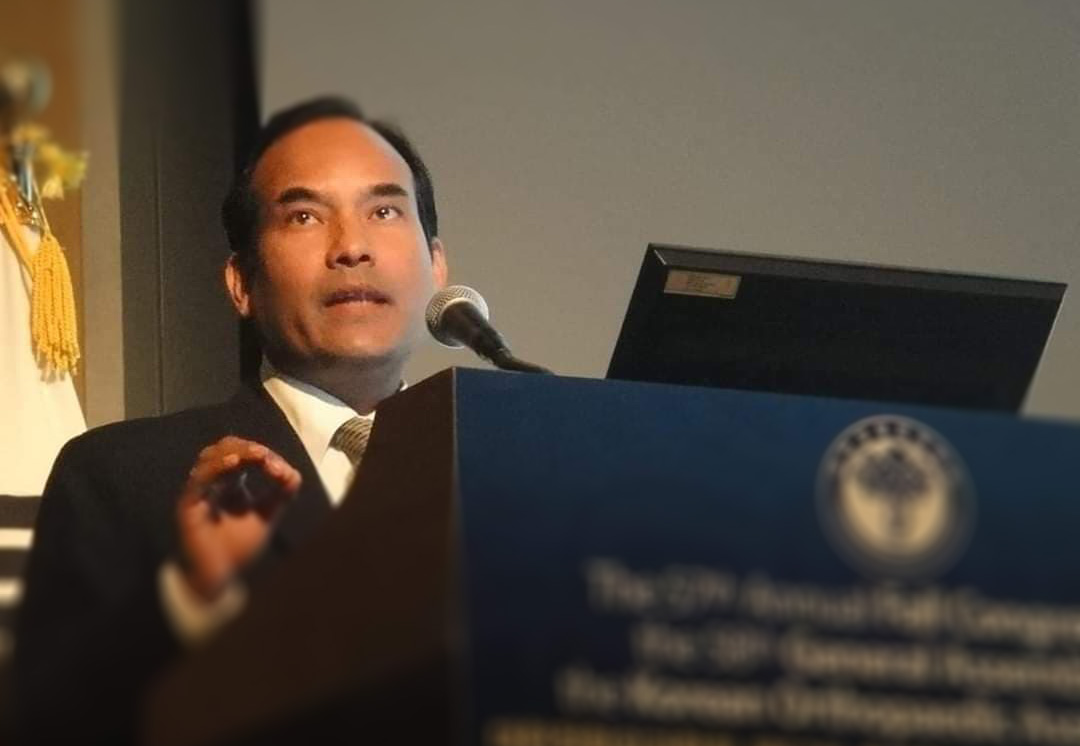
COVID-19 & its impact on different aspects: Prof. Dr. Pashupati Chaudhary
The outbreak of the COVID-19 pandemic has created a global health crisis that has a deep impact on the world and everyday lives. Humans are inherently social beings, so they prefer to have a social life. Due to this pandemic, the safety measures like social or physical distancing put in place to contain the spread of the virus by refraining from doing what is inherently human character, to find solace in the company of others. Within this context of disease spreading rapidly, social and physical distancing, adherence to personal hygiene, use of masks, prolonged lockdown measures & closed factories, industrial plants, shops have not only affected health but also affects human psychology, behavior, socio-economic condition as well as economy.

Health
COVID-19 pandemic has severely disrupted Prevention and treatment services for non-communicable diseases (NCDs) along with other non-COVID diseases “Many people who need treatment for diseases like cancer, cardiovascular disease, and diabetes, fractures & other non-COVID disease have not been receiving the health services and medicines since the COVID-19 pandemic began. It’s vital that countries find innovative ways to ensure that essential services remain intact for NCDs & other non-COVID diseases continue, even as they fight COVID-19.”
Health services have been partially or completely disrupted by the COVID-19 pandemic in many countries. More than half (53%) of the countries have partially or completely disrupted services for hypertension treatment; 49% for treatment for diabetes and diabetes-related complications; 42% for cancer treatment, and 31% for cardiovascular emergencies, a significant number for fracture or orthopedic related problems & other non-COVID diseases.
Rehabilitation services have been disrupted in almost two-thirds (63%) of countries, even though rehabilitation is key to a healthy recovery following a severe illness from COVID-19 pandemic or from orthopedic related illness In the majority (94%) of countries, health staff working in the area of NCDs are partially or fully reassigned to support COVID-19.
The postponements of public screening programs (breast and cervical cancer) are also widespread, reported by more than 50% of countries. But the most common reasons for discontinuing or reducing services are cancellations or referred of planned treatments for time being, a decrease in public transport system available, prolonged lockdown and a shortage of staff because health workers have been reassigned to support COVID-19 pandemic Alternative strategies have been established in most countries around the globe to support the people at highest risk to continue receiving treatment for NCDs & other non-COVID diseases. Globally 58% of countries are now using telemedicine (advice by telephone or online means) to replace in-person consultations or visiting out-patient departments.
Covid-19 pandemic has put enormous stress on health resources around the world, In many countries, it broke the existing health care system due to unavailability or lack of health resources: in fact, Covid-19 has exposed an already broken system in many countries. Countries fight with each other for health resources or there is internal competition within. This international phenomenon threatens health systems’ ability to prevent and treat the coronavirus with shortages of essentials like hand sanitizers, masks, and pain relievers.
Economy
Covid-19 has put great stress on the economy: due to prolonged lockdown measures & closed factories, industrial plants, shops & plight of migrant laborers, the economy of many countries is going downhill. At the same time, some countries try to take advantage of the situation. Covid-19 pandemic is also worsening the ongoing problem of substandard, expensive, and falsified drugs. Health scams, falsified drugs, counterfeit materials can be harmful and even fatal to patients besides potentially leading to delays in proper diagnosis and treatment, the sale of expensive counterfeit face masks and surgical gloves presents a serious public health hazard or problems against the spread of COVID-19 in many countries.
Health scams also have an economic impact on where resources are already scarce. The economic loss to governments and patients’ loss of income due to loss of jobs, closed factories, shops & other methods of livelihood increase socioeconomic inequalities and worsens health outcomes for these patients.
Social behavior
Covid-19 pandemic has drastically altered our lifestyles or routines. people resort to panic buying of potential drugs, treatments may also deplete medicines/drugs for patients who need most with chronic diseases– chloroquine and hydroxychloroquine remain unproven for COVID-19, but are vital medicines for autoimmune conditions.
Panic buying threatened to disrupt the global health supply chain. panic buying is not limited to grocery stores and pharmacies, It also presents a serious threat to ongoing global efforts to reach a Sustainable Development Goal by 2030: to ensure “access to quality essential health care services and access to safe, effective, quality and affordable essential medicines and vaccines for all.”
It is also important that physical or social distancing measures, which are necessary to prevent the spread of COVID-19, are substantially more difficult for those with adverse social determinants and might contribute to morbidity. Malnutrition or scarcity of food causes the substantial risk to both the physical and mental health of children, including lowering immune response, which has the potential to increase the risk of infectious disease transmission Physical or social distance has been dubbed an issue of privilege that is simply not accessible for non-privileged.
Socioeconomic Condition
Covid-19 has aggravated global socioeconomic inequalities, While the pandemic has drastically altered our routines.The connectedness began as people voiced their concerns with panic buying and its impact on vulnerable populations due to underlying socioeconomic inequalities.
COVID-19 has been considered as the great equalizer, necessitating social & physical distancing measures across the globe, it has not discriminated to anyone based on religion, region, caste, poor/rich,: in fact, it has affected all, it is increasingly demonstrable that social inequalities in health & economy are profoundly, and unevenly, impacting COVID-19 morbidity and mortality.
Many social determinants of health—including poverty, low socioeconomic status, physical environment (eg, smoke exposure, homelessness), personal habits and race or ethnicity—can have a considerable effect on COVID-19 outcomes. Homeless families are at higher risk of transmission because of crowded living spaces and scarce or no access to COVID-19 screening and testing facilities. Smoke exposure and smoking has been linked to adverse outcomes in COVID-19
Conclusion
Covid-19 pandemic has adversely affected all aspects of human life. The effect of social determinants of health and COVID-19 morbidity is perhaps underappreciated; the great public health lesson is that for centuries all pandemics disproportionately affect the poor, disadvantaged, and non-privileged.
Additionally, mitigating social determinants—such as improved housing, good ventilation, reduced overcrowding, good personal hygiene, and improved nutrition—reduces the effect of infectious diseases, such as tuberculosis, even before the advent of effective medications or antitubercular drugs.
COVID-19 pandemic has shed light on the broad disparities or inequalities within our society and provides an opportunity to address those disparities/inequalities moving forward.
—-
The writer is Professor & Head
Department of Orthopaedics, B.P. Koirala Institute of Health Sciences, Dharan, Nepal

